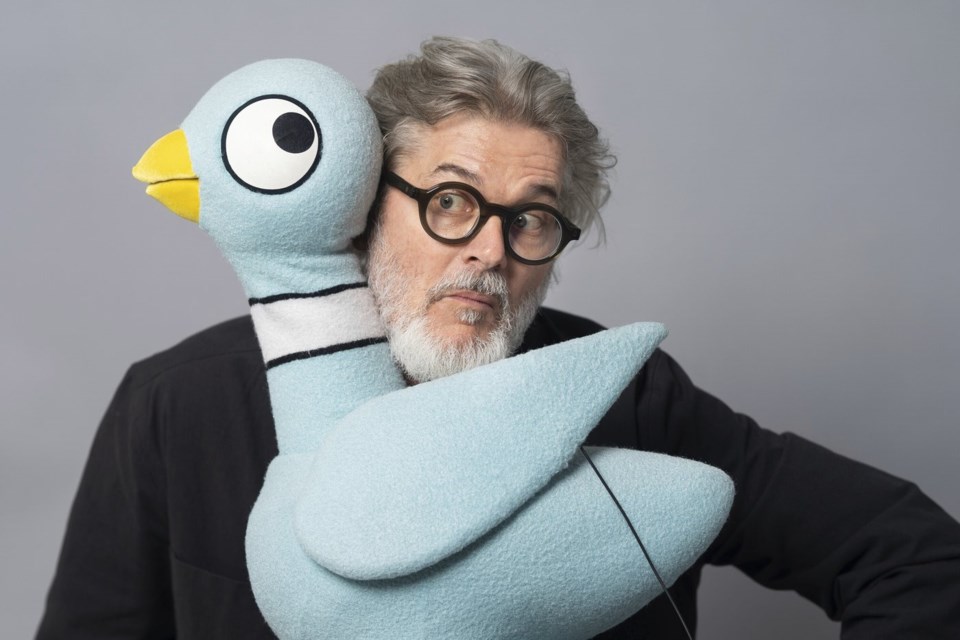NEW YORK (AP) ā has sold millions of books and won many awards, but the accolade that means most to him is when a parent says their child read aloud for the first time from one of his books.
The 57, is best known for his like the Caldecott Award-winning āDonāt Let the Pigeon Drive the Bus!ā and āKnuffle Bunny.ā His latest book, āWill the Pigeon Graduate?ā may look like itās aimed at children, but the titular Pigeonās fear of failure and an uncertain future are sure to resonate with people of all ages, especially during graduation season.
Willems and his trusty friend The Pigeon (charmingly represented by puppeteer Bradley Freeman Jr.) recently sat down with The Associated Press for an interview about graduating, āSesame Street,ā and the purpose of life. Answers have been edited for clarity and brevity.
AP: How did graduation come to mind for a book topic?
WILLEMS: As I am getting older, which I am, Iām getting into a new part of my life. And Iām wondering, am I equipped to be living in this part of life? And as I ask that question and I donāt have the answers, then I think, well, what is that metaphor that kids are going through? And graduation seemed like the perfect thing. Iām graduating to a new stage in my life, and kids do this all the time. You graduate to tying your shoe. You graduate the first time you read.
THE PIGEON: Like driving a bus.
WILLEMS: Yeah, well, except for driving a bus. That is something you cannot graduate to, if youāre a pigeon, but thank you for contributing to the conversation.
THE PIGEON: Of course.
AP: People may think this is just for graduates, but could it be about any transition?
WILLEMS: I think itās about asking yourself, āAm I equipped for something that scares me?ā The real world is scary. Weāre always asking ourselves those questions. And often the answer is ... I donāt know. And thatās something that might feel uncomfortable to sit with, but itās also something thatās very, very exciting. So like right now, Iām doing an interview with you and a giant pigeon. Is this gonna work out? If Iām going to get a little bit philosophical, I would say often weāre trying to give the answers, and I think kids get exhausted from it. I want to give them the questions. I want them to have a chance to live with these questions themselves and work their way into an answer rather than telling them, āOh, youāll be fine.ā
AP: Mr. Pigeon, what is your favorite part about collaborating on this book?
THE PIGEON: I really like how all of the books are about me. I like how Iām on, like, almost every page. You know, all of these books go through an approval process, and I get sent advanced ā I call them screeners, nobody likes when I call them that! ā but I get to look at them. And if Iām not on the first page and the last page, it does not get approved.
AP (to Willems): Can you reflect on your nine seasons as a writer and animator on āSesame Street,ā winning six Emmys and helping to develop āElmoās Worldā?
WILLEMS: My love of puppets, my love of sketch comedy, my love of counting to 40 ā all these things that I really, really love ā came from āSesame Streetā! And when it came time for me to make books, one of the things that I got to do that we didnāt get to do on āSesame Streetā at the time was write about failure. Write about not driving the bus rather than driving the bus. So on one level, it was like going to grad school. I loved it. I learned so much. I met all of these great puppets and puppeteers. On the other, the restrictions of the show allowed me to find my own voice.
AP: Obviously, one of the bookās messages is you have to believe in yourself.
WILLEMS: I donāt know. Iām glad that you think that thatās one of the messages because you brought something to that book. I only write 49% of the book. You put the meaning in the book; if the book is meaningful, that is because you are putting yourself within it. I try not to have messages as much as I can. I really try to live in the question.
AP: Mr. Pigeon, do you think your participation in this makes you a little bit of a philosopher?
THE PIGEON: Yeah, I think thereās a lot of very powerful things going on up here in this little bird brain. Thereās a lot of really deep questions, like, I donāt know, can I drive the bus, maybe? You know, wondering maybe if I can stay up late? That would be really great.
WILLEMS: These are all fundamental Greek philosophical questions.
THE PIGEON: And what is the purpose of life?
WILLEMS: What is the purpose of life? Why are we here? Why are people mean? Why are people nice? Can I drive the bus?
THE PIGEON: Can I have a hot dog?
Brooke Lefferts, The Associated Press


